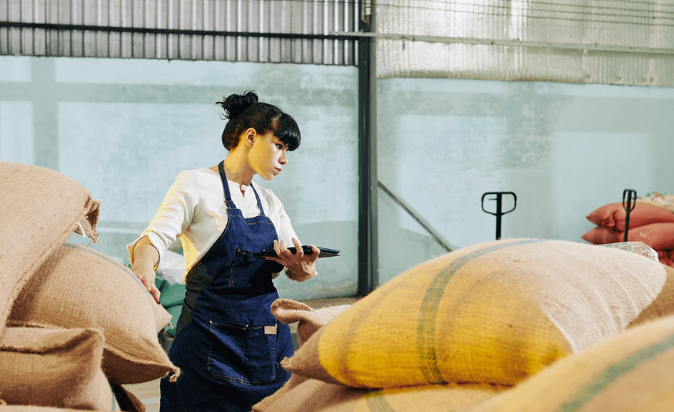Typical Difficulties Experienced by Food Sellers in the UAE
- Feb. 4, 2023
- FMCG HORECA BUSINESS

One of the sectors in the UAE that is expanding the quickest is food and beverage. As you can see, the same industry suffered serious difficulties as a result of the epidemic, but the UAE government deserves praise for how they handled the situation and helped even the tiniest wholesale distribution businesses there. Dubai has long been considered the best city in the UAE for wholesale food wholesalers. The population of Dubai is multicultural, with a wide variety of dining options and, most significantly, opulent lives. When it comes to the clients' purchasing decisions, all these elements are important. Demand is constant, which has caused the wholesale food distribution industry in Dubai to see tremendous expansion.
Did you realize? Perishable commodities spend half of their shelf life in transit, and around 33% of food is lost or destroyed during the shipping or transport process. The difficulties that food delivery firms must overcome go well beyond this.
Let's talk about some of the most distinctive difficulties that Dubai's food distribution businesses face:
1. Cost
The price of food in the UAE grew by the highest since October 2020, or 3.71%, in December 2021 compared to the same month the year before. The need to increase production and save costs is thus more important than ever. The food distribution firms in the United Arab Emirates are on edge due to an increase in the retail grocery sector and an increase in labor costs.
On the other side, customers are migrating to supermarkets that provide inexpensive goods as they become more cost aware. As a result, larger companies will have total control over the supply chain, endangering smaller market participants.
2. Supply chain administration
The wholesale distributors should be familiar with and knowledgeable about all parties engaged in the distribution of food goods and the supply chain process in order to prevent supply chain mistakes. Customers now want openness and evidence that the things they are purchasing are genuine and high-quality, therefore they ask for information about the food products and the source of their transportation.
3. Wastage of food
Food loss during transport is mostly caused by the shocks and vibrations created by movement. If there are ineffective packing techniques, improper wrapping, or if the items were not loaded properly, the damage might be significant. You lose money from such food loss and damage, and your customers are less satisfied.
It is essential to monitor weather conditions before deciding whether or not to carry food since weather conditions may potentially cause food damage.
4. Monitoring
Regarding food quality, the UAE government is always vigilant. They closely monitor the manufacturing and distribution of food goods. They make sure that the consumers get the greatest food possible under the ideal circumstances, which reduces the likelihood that the food will be harmed or contaminated.
5. Insufficient storage area
If you are not making the most use of your warehouse space, it will undoubtedly not be lucrative for you. Managers may have significant issues with poor warehouse architecture and inadequate storage space use.
6. Logistics
Food distributors always confront logistical difficulties. The scope of receiving higher shipment orders from a particular city, state, or country, allocating the right number of vehicles, ensuring the food's quality, etc. are some of the crucial logistics-related issues that food distribution companies face. Others include the decision of whether to keep the distribution radius limited to a few areas or cater to wider geography.



